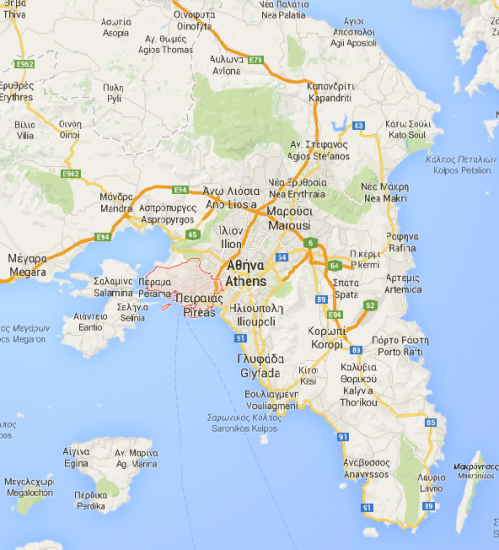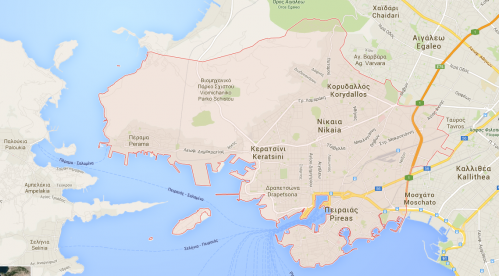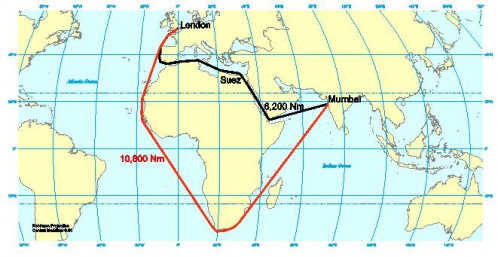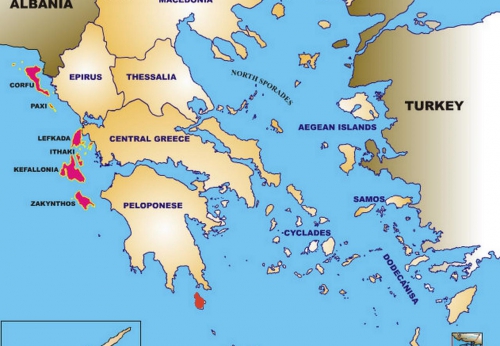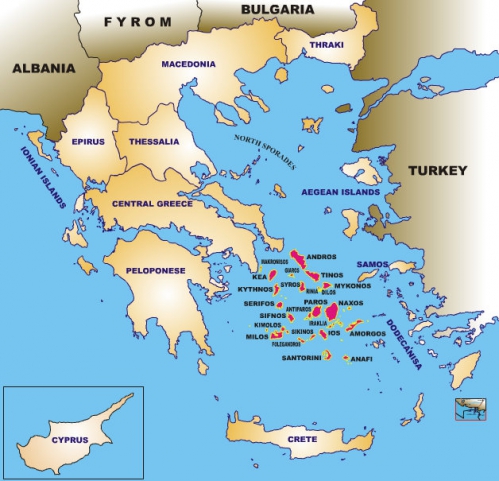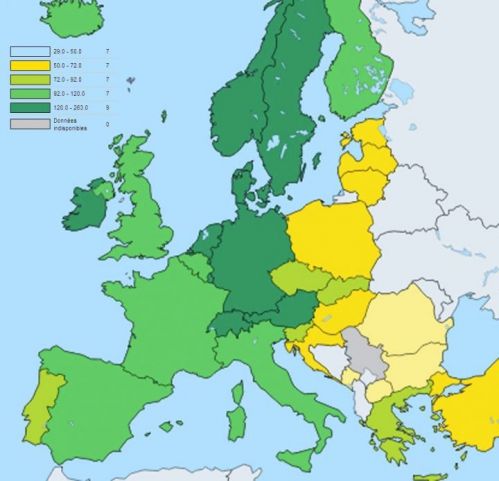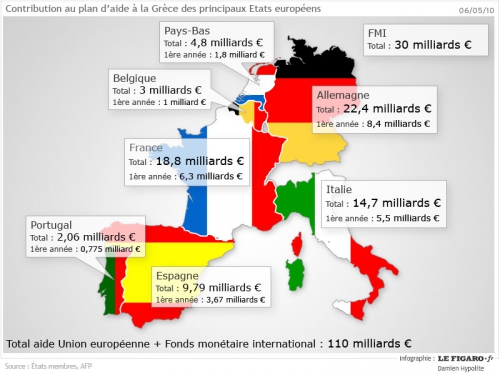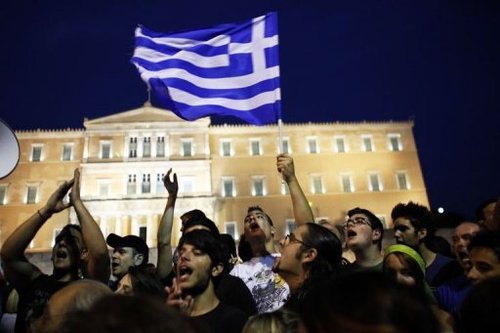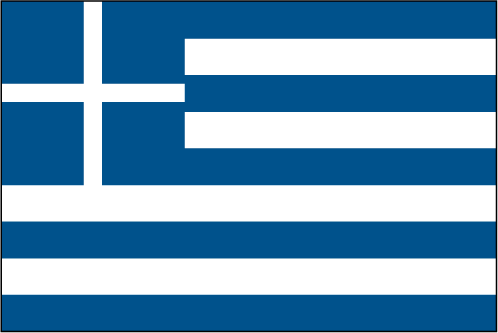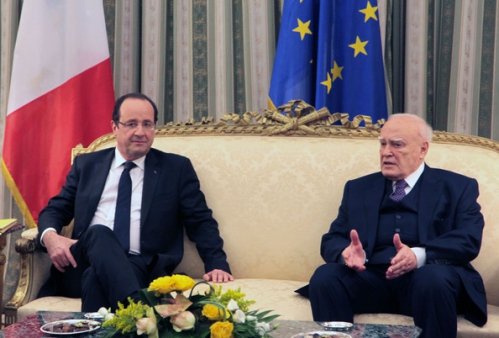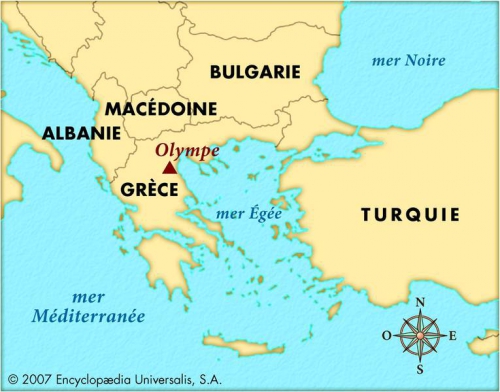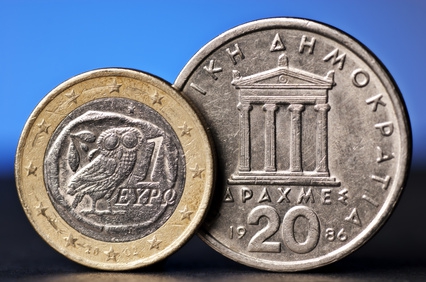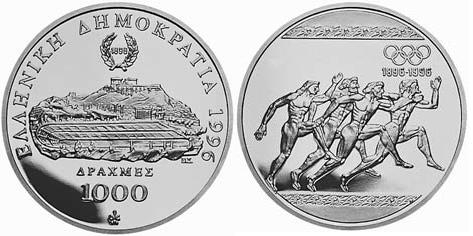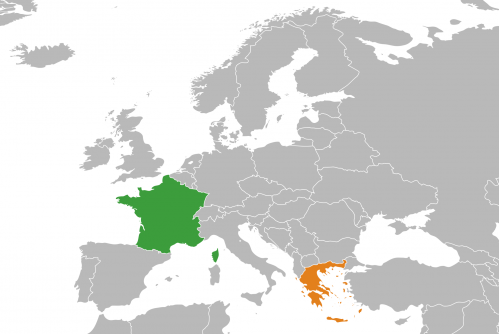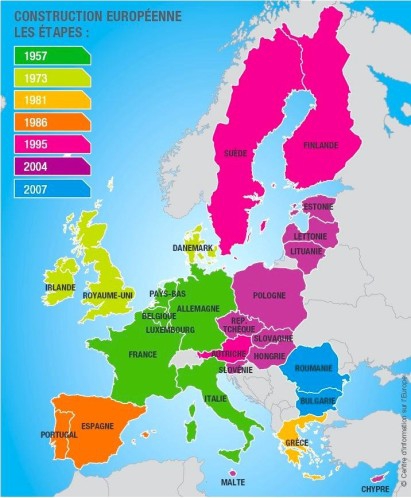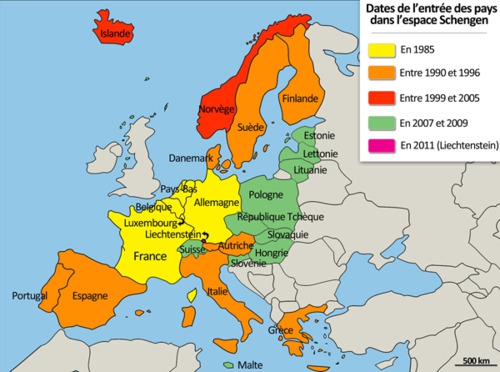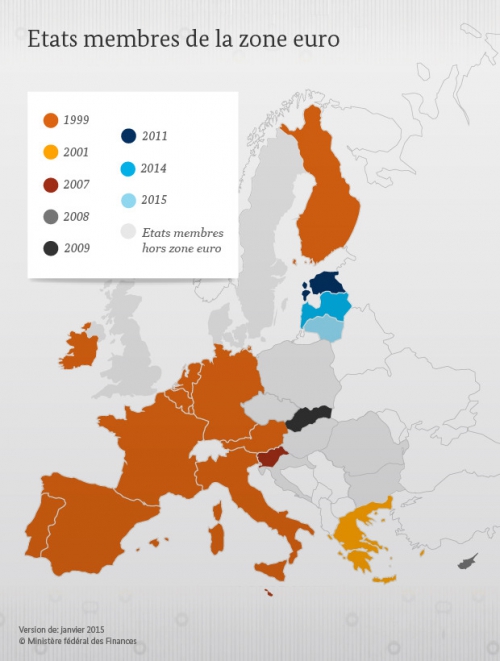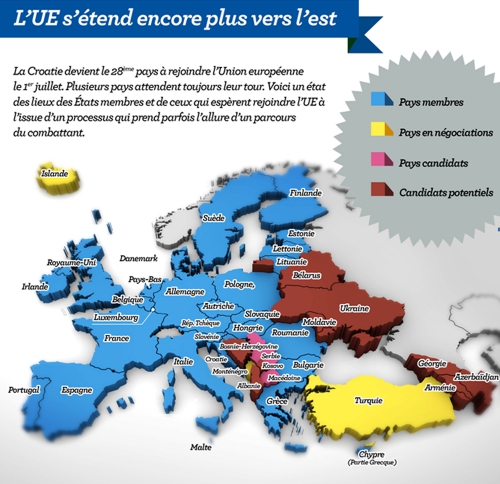3. French students observing Greece
Pyraeus seaport and his problem
Introduction :
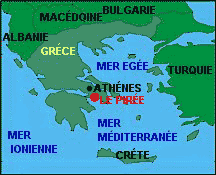
The Piraeus is a city situated in the suburbs of the capital city, Athens, at the weark of the region of Attic in Greece.
https://www.google.fr/maps/place/Le+Pir%C3%A9e,+Gr%C3%A8ce/@38.0443443,23.7778068,10z/data=!4m2!3m1!1s0x149eff8d3b1eed19:0x300bd2ce2b98080
It's also a huge marine and container port. The most frequented of Greece and also the largest of Europe.
The Piraeus has a marina, mostly tourristic. It offers various equipement an means of transport ( bus, boat, maritime shuttle), making the central harbour a hub of commercial and passenger slipping.
THE MARINA
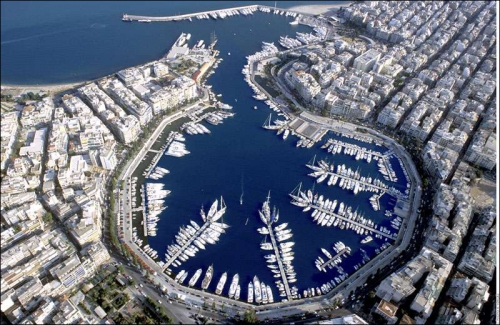
http://www.quizz.biz/quizz-307672.html
THE SEAPORT
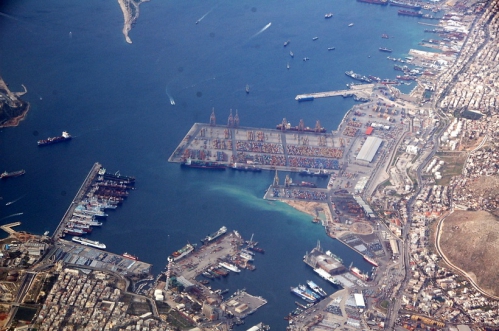 http://www.nvm.fr/le-piree-le-port-dathenes/
http://www.nvm.fr/le-piree-le-port-dathenes/
1. The Greek government rents part of the harbour of goods to earn money because it is involved in debt.
The harbour of goods accomodates a large number of cargo liners of goods, often coming from China because since 2008, it is rented partly by a Chinese company : Cosco global shipping giant.
Cosco has many activities. It is primarily an owner renting ships to other companies. It also carries goods on ships.It is also renting containers in the harbour to store the merchandises.
Cosco is a transnational firm because itrs leaders are working in Beijing, but its ships cross the oceans and stores are located on many continents.
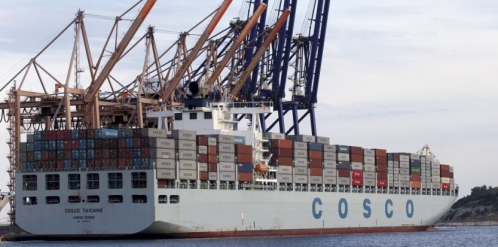 http://www.challenges.fr/economie/20130507.CHA9156/le-port-d-athenes-bat-pavillon-chinois.html
http://www.challenges.fr/economie/20130507.CHA9156/le-port-d-athenes-bat-pavillon-chinois.html
2- The strategie of Cosco
The canal of Suez in Egypt permits to shorten the maritime itinerary between China and Europe.
http://www.voxeu.org/article/1967-75-suez-canal-closure-lessons-trade
Indeed, the Pireus is the nearest European shipping harbour to the canal of Suez. That's why Cosco, a giant shipping company owned by the chinese government, has chosen to lease the Pireus port.
3- Discontent Greek workers.
The dockers (Greek employees who load and unload cargo) ships went on strike because Cosco dismissed many Greek dockers, so they no longer want Cosco to run the port. This is a very long strike. They pronounced the speech "Cosco go home" because they work more to earn lower wages than before, when the Greek government owned the port.
Conclusion :
Lots of arrangements have been put to improve performance. The merchandises arriving in Piraeus by train will soon be sent very quickly to the port of Piraeus to leave Europe on a container ship and vice versa. Moreover a new terminal is being built to accomodate larger boats.
Thessaloniki and Patras
Thessaloniki
It is a city of Greece.
It's the capital periphery of central Macedonia in Greek Macedonia.
In 2001, there was 363 987 inhabitants.A famous city for festivals and cultural events.
In 2014, it was appointed "youth capita". Its port ? a major importance for Greece. The city was based by "Cassandra of Macedonia". in - 315.
Patras
It is a city of modern Greece.
It's located north Peloponnese peninsula.
In 2011, there were 169 242 inhabitants.
It is the chief town regional district of Achaia.
It is also the main port for travelers on the Patras gulf.
This is one of the most poorest city of Greece.
It holds historical seat of an archdoicese of the catholic church.
In mythology, residents should give the most beautiful boy and girl to Adonis or else a spell.
Tourism in Greece : main source of income
Seaside tourism
Greece is a country with much deficit, It is indebted But it still is the 18th most visited country in the world with more than 14,4 millions tourists every year
Greece develops two aspects of tourism, seaside tourism and cultural tourism.
1- Ionian islands.
http://www.grecevacances.com/medias/images/grece-cyclades-carte.jpg
Those are mountainous islands in the east side of Greece. The climate is rainy, which allows them to get loads of vegetation. This is why they are unique in Greece.
There are 7 of them from North to South : Corfou, Leucade, Céphalonie and Ithaque, Zante and Cythère farther from the others , on both sides of the last but not least Péloponnèse.
2- The Cyclade Archipelago
http://www.grecevacances.com/medias/images/grece-cyclades-carte.jpg
This archipelago is composed of 39 islands but only 15 of them are inhabited, the tourism activity is high in
there.This is the origin of the photos we often see, well-known for its white houses on the top of a small hill. Those 15
islands offer huge beaches,small villages, castles, churches , antique ruins but also bars and clubs.
Mains islands : Amorgos, Anafi, Andros, Antiparos, Delos, Ios, Kea, Kimolos, Folegandros, Milos,
Mykonos, Naxos, Paros, Santorin, Serifos, Sikinos, Sifnos, Syros and Tinos.
3- Crete
Crete is the fifth largest island in the Mediterranean Sea and undoubtedly one of the finest.
It is mountainous with a chain that extends from West to East.
The distance separating it from the continent explains that Crete has remained independent for centuries,
developing its own culture, language and traditions.
The island has much to offer: beautiful beaches, landscapes, mountains, a forest of palm trees,
traditional villages and towns, churches, castles
4- Dodecanese Islands
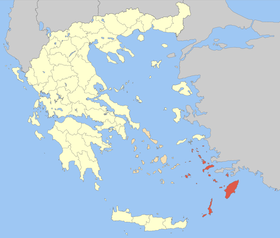 http://fr.wikipedia.org/wiki/Dod%C3%A9can%C3%A8se
http://fr.wikipedia.org/wiki/Dod%C3%A9can%C3%A8se
This archipelago is located along the Turkish coast, it consists of twelve main islands.
Between the East and the West, the story there was often hectic,as shown by different kinds of architecture
The most famous of these islands is Rhodes, medieval architecture, but the other islands are highly interesting as well, particularly Patmos.
The sights are diverse: ancient and medieval sites, castles, beaches, villages, ...
5- Sporades septentrional
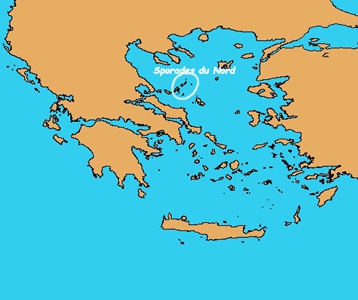 http://greciabella.free.fr/pagesko.htm
http://greciabella.free.fr/pagesko.htm
With many islets, the archipelago of the Northern Sporades is composed of four main islands: Skiathos, Skopelos, Alonissos and Skyros.
These islands are wooded, with pleasant landscapes and picturesque villages.
Faliro Palaio (2)
Paleo Faliro is an edema located in the periphery of Attica in Greece , 6 km to the southwest of the city center of Athens. The Municipality of Paleo Faliro is known to have the closest beach of Piraeus. Paleo Faliro is almost completely urbanized.
The beach area was redeveloped for the 2004 Summer Olympics , and now has a waterfront, several sports facilities , a marina and park of Maritime Tradition Museum where ships are exhibited. Its name comes from the bay and ancient Phalere edema, Phalere is the first harbor of Greece ( 5th century before Jesus-Christ ) . Over the past 34 years, the population has been increasing :
|
Année |
Population |
|---|---|
|
1981 |
53273 |
|
1991 |
61371 |
|
2001 |
64759 |
|
2011 |
64021 |
The important monuments:
-
Cultural center of Palaio Faliro
-
Marina of Flisvos
-
Church Panagitsa
-
Park of maritime tradition
Cinema Village Complexes
-
Kimatothrafstis (brise-lames)
-
Faliro Sport Pavillon Arena, build for the summer olympic games of 2004
-
War cementary of Phalère
The Greek population
I- The standard of living of the greek population
1.The unemployment
The average of the unemployment rate in Europe is 11,5 % in July, 2014. Greece is the country which has the highest unemployment rate with a rate amounting to 26,4 % followed by Spain 24,5 %. Norway is the country having the lowest unemployment rate 3,4 % and the unemployment rate in France is 10,5 %. On this map we can notice that it is especially the countries of the South that are affected by the unemployment.
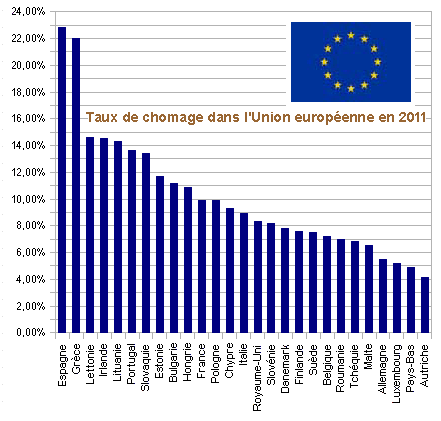
2.The GDP(GROSS DOMESTIC PRODUCT)
http://geopolis.francetvinfo.fr/leurope-en-sept-cartes-32369
The GDP in Europe average is 100 inhabitants of Greece are less wealthy than the European average because GDP is 75.The country with the lowest GDP Albania with a GDP of 30 and the country with the highest GDP is Luxembourg with a GDP of 264. France has a GDP of $ 108.
3. In Greece, where poverty is increasing more than elsewhere in Europe
Between 2012 and 2013, Greece held the record of the European country where poverty increased the most. Poverty and purchasing power has almost doubled, it increased from 11.8% in 2012 to 23.7% in 2013. En Grèce le travail se fait rare, notamment pour les jeunes. La plus part d'entre eux projettent de venir travailler en France. En revanche, toutes les dépenses ont due être revisité ce qui n'a rien arrangé. Pour couronner le tout, aux prochaines élections municipales et européennes, le Gouvernement risque de perdre des élections en
because of dissatisfaction of Greek citizens.
4.The primary surplus
Greece shows a primary surplus of more than 2 billion euros, that is to say that economic activity has resumed. It creates wealth. Despite this, the debt remains high and the Greek-must repay lot of money.
II-Multiculturalism and the opening of greek
1. Relations between Greece and France
Relations between France and Greece have always been very strong. They are costs caused by their political aspects that were a certain friendship and good Franco-Hellenic cooperation, but it also created with an ideological and cultural level. These relationships strengthen over time, but during the economic crisis, contacts and exchanges are reduced.
2.Location of linguistic minorities in Greece
In northern Greece live Slavs, that is to say, the Macedonians (Florina) and Bulgarians (Serres region), and also Pomaks and Turks (Thrace). In Epirus and Thessaly, there are Arvanites and Aromanians.
In the greater Athens (which is the capital), in the Peloponnese, the island of Evia and Andros, cohabit with the Greeks Arvanites. Finally, in the island of Kos and Rhodes, live small Turkish communities.
As for the Roma minority, it is scattered throughout Greece, but significant communities living in Western Thrace. Near Thessaloniki, one can still find a tiny Jewish minority of Latin language. It also remains small Armenian communities in Thessaloniki, Athens and Crete.
Greece in the euro zone
In 2000, to join the euro zone, Greece provided false statistics halving the numbers of its public décifit (cumulative budget balances of central governments, local and social security). At that time, debts have increased and have forced the country to borrow a large sum of money, and that can not repay, Greece began to go into debt. This is the beginning of Greece's economic crisis.
In autumn 2009, newly elected , the first Greek minister , George Papandreou , announced that the public deficit was 12.7 % of GDP, it has fallen by a quarter in six years. On the other hand , unemployment reaches 26.5% , 60% among young people.
http://economie.lefigaro.fr/espagne-portugal.html
May 2, 2010 , Athens gets help from the European Union and the IMF (International Monetary Fund ) worth 110 billion euros over three years. This money will be used to bail out the country and build infrastructure . The country decided to freeze the salaries of civil servants , increase taxes, to tax more regularly and put in place an austerity potiltique . This reduces the living standards of Greek which causes many events.
http://www.comite-valmy.org/spip.php?article1558
meaning of Greek flag
The capital of Greece is Athens. The national colours of Greece are blue and white.
http://www.cotton-shop.ch/catalog/default.php?cPath=22_25_32_175
The coast of arms of Greece consists of a white cross on a blue exatcheen ??? wich is surrounded by two laurel branches. It was established on 7th june 1975. Blue symbolizing the sky and the sea / the white : the purity of the Greek war of independance.
The cross represents the christian religion, nine blue and white horizontal stripes on the flag symbolize the nine syllables of the Greek currency alphabet ?. The anthem of freedom is a poem written by Dionysios Solomos (1823).
Relations between Greece and France are traditionnaly close narrow ?, the political aspects were first formed with Franco-Hellenic frienship and cooperation but this solidarity between the two peoples was also built on cultural and ideological elements. Unfortunately, the cross reduced the contacts and excanges between the two countries.
Greece is considered as the founding country of the democracy. It was only in 1821, date of its independance, that Greece learnt liberty. The country had to make up for economic, technological and intellectual retardation and carry on the fight to impose freedom, especially during the dictatorship of colonels from 1967 to 1974. For its entry in European economic community ? in 1981, Greece continued to evolve and to transform. Great efforts were performed, from every point of view. Greece is today, a mixture of culture and traditions, western and oriental traits.
Since 2005, the president has been Karolos Papoulias.
Your president with our president, François Hollande in Athens, 2013.
http://www.zimbio.com/photos/Karolos+Papoulias/Francois+Hollande
Greece geography : an overview
I- Location
Greece is located in southern Europe, it has several frontier countries (1228 km of land borders) for example : Albania, Bulgaria and Turkey. Greece extends on more than 131 990 km².
Its capital is Athens, with 4 million inhabitants (nearly a third of Greece inhabitants).
Greece is divided into 13 regions, that are eastern and western Macedonia, Thrace, Central Macedonia, western Mecedonia, Epire, Thessaly, western Greece, Central Greece, Attic, Peloponese, southern Egea, northern Egea, Crete and the Ieonia Islands. Greece also consists of other islands, the ionian islands and the Aegean islands.
The islands cover 1/5 of the surface, the largest island is Crete.
http://mythologie--grecque.e-monsite.com/pages/mont-olympe.html
II- Landscapes and climate
Greece is a very mountainous country (80% of its surface). The highest mountain is mount Olympus. Mount Olympus is more than 2917 m. The highest peak in Europe is the Mount Blanc in France (4810 m).
Greece is wostly a mountainous country. In Greece, there are very few hish mountains but a large quantity of hills. The weather is usually very dry, approximately 40°C and mild in winter (it does not exced 8°C). The sun is present in summer but also in winter. Negative temperatures are very rare. One calls this climate : the Mediterranean climat.
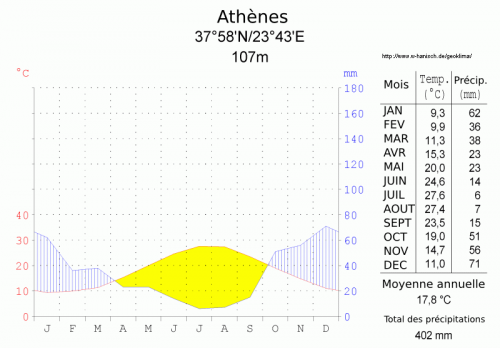 http://commons.wikimedia.org/wiki/File:Diagramme_climatique_Ath%C3%A8nes.png
http://commons.wikimedia.org/wiki/File:Diagramme_climatique_Ath%C3%A8nes.png
Greece in the European Union
1) The Greece debt
The European Union is the voluntary association of European states, in the economical and political fields created in order to insure upholding peace in Europe and favor the economical and social progress of its members. The European Union has counted among its membres Greece in 1981.
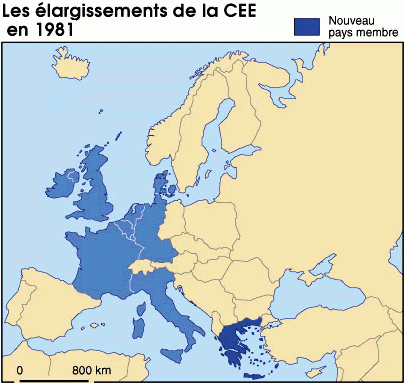
Greece is a country in crisis and the European Union must help it financially.
Germany is very critical because it doesn't want participate in this scheme.
But if France gives 6.3 billion euros, this will create a reduction of the Greek debt.
2) The Franco-German couple
The crisis in Greece is financially worse beacause its GDP is very weak.
The IMF got involved too as a compensation, the country had to accept the rigorous measures to reduce spending and to organise structural reforms on an economical level, up to 30 billions euros.
3) The dissatisfaction of the population
Since the beginning of the Greek crisis, the population has reduced its purchases and has felt the pressure of the crisis every day.
The country also believes the other European countries did nothing to help them financially and Greece should leave the Euro and come back to drachmes.
http://www.loretlargent.info/crise/scenarios-a-la-grecque-de-la-drachme-au-retour-de-l%E2%80%99or/5811/
The history of Greece in the European Union
I- the history of the European Economic Community
The EEC was created in 1957 by 6 countries :
-
France
-
Federal Republic of Germany (FRG)
-
Luxembourg
-
Italia
-
Belgium
-
the Netherlands
In 1973, the United Kingdom, Ireland and Denmark ; in 1981, Greece and in 1986, Spain and Portugal joined the EEC.
II- Greece's integration in the EEC
When the Regime of the Colonels (1967-1974) collapsed, Greece dropped off his candidacy to the EEC, the 12th June, 1975. Agricultural and economic questions ( the GDP was too low ; the rate of unemployment, too high compared to the other EEC's countries ; the inflation too great ; some EEC members expressed fears about Greece), as well as Turkey's integration slowed the process of adherence. Finally, on the 1st of January, 1981 Greece joined the EEC.
Greece (in orange) is the 10th country to have integrated the EEC after France, Italy, Luxembourg, Germany, Belgium, the Netherlands,the United Kingdom, Ireland and Denmark.
http://en.wikipedia.org/wiki/France%E2%80%93Greece_relations
Konstantínos Karamanlís
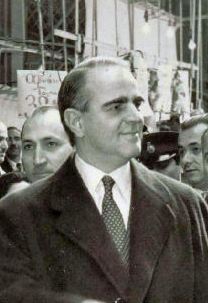 http://fr.wikipedia.org/wiki/Konstant%C3%ADnos_Karamanl%C3%ADs_(1907-1998)
http://fr.wikipedia.org/wiki/Konstant%C3%ADnos_Karamanl%C3%ADs_(1907-1998)
He was Greece Defence Minister, then Prime Minister. He was elected President of the Republic in 1980 and was President during 5 years. In 1990 he was elected for a second time.
In 1961 the ERE (Karamanlis's political party) won the elections and after that, he said that the results were fixed and that the fraud had been organized by the palace. The political troubles increased when Papandreou refused to accept Karamanlis's government and when he started a struggle against Karamanlis less than a month after the elections.
The tensions between the Prime Minister and the palace increased again when Karamanlis opposed a fundraising initiative by Queen Frederika. In July 1963, after a disagreement with King Paul(Greece king) Karamanlis was fired from his Prime Minister's position and for four months, lived in a foreign country. In November, Karamanlis and his political party lost the parliamentary elections against Georgios Papandreou's political party. He was disappointed so he fled Greece under the name Triadafyllithis. He went into self -imposed exile for eleven years in Paris(France) and became friend with Valery Giscard d'Estaing (a former French President). Panagiotis Kanellopoulos replaced him at the head of the ERE (National Radical Union)
Andréas Papandréou
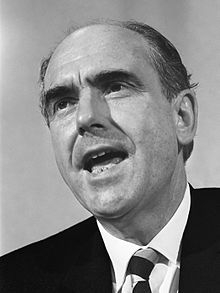 http://fr.wikipedia.org/wiki/Andr%C3%A9as_Papandr%C3%A9ou
http://fr.wikipedia.org/wiki/Andr%C3%A9as_Papandr%C3%A9ou
Andréas Papandréou was a Greek economist and politician. He was the PASOK's founder( the Greek socialist party). He was Prime Minister twice, from 1981 to 1989 and from 1993 to 1996. Both his father and his son were Prime Ministers too. He was arrested for purported Trotskyism, he was sent to jail and tortured in 1939, during the Fascist Metaxas's dictatorship. Then he was allowed to go into exile in the USA. After that, he came back in Greece in 1961 to manage the economic planning Center at Karamanlis's request.
After the coup of April 21, 1967 he went into exile again in the USA. Over there, Andréas Papandréou created the Panhellenic Movement of liberation which recommended the armed struggle against the colonels's dictatorship and crtiticized the USA, the NATO and the European economic community because of their kind policy concerning the army.
III- Greece's place in the EU, the Schengen area and the euro area.
Greece's place...
a- … in the european union :
In 1992, the Maastricht Treaty turned the EEC into the European Union (EU). It now has 28 members.
http://lycee-louis-payen.ac-reunion.fr/construction-europeenne
The European Union has expanded into 8 parts :
- First, France and Germany (the two pillars of the EU) have joined the European Union as well as Italy, Belgium, Luxembourg and the Netherlands.
- In 1973, the EU has expanded to the north of Europe, with the admission of Ireland, the United Kingdom and Denmark.
- In 1981, Greece was the only country to join the EU. Shortly after, in 1986, Spain and Portugal also joined this union.
- In 1995, only three countries joined the EU, Austria, Finland and Sweden.
- It is in 2004 that the EU is the most expanding with the entry of countries in Eastern Europe such as Slovenia, Hungary, Slovakia, the Czech Republic, Poland, Lithuania, Latvia, Estonia and Malta and Cyprus.
- Finally, the last countries that joined the EU are the countries of southeastern Europe such as Romania and Bulgaria in 2007 and Croatia in 2013.
b- … in the Schengen area :
June 14th, 1985, in Schengen, agreements were signed by five countries: Belgium, France, Luxembourg, the Netherlands and Germany. The purpose of these agreements is to phase out the borders of the Member States so that people belonging to it can move freely. All the States belonging to it are therefore called the Schengen area.
Today, 26 states are members.
http://milanpresse-presidentielle.com/post/19338316604/cest-quoi-lespace-schengen
The Schengen area has expanded into 5 parts:
- Initially, in 1985, the Central European countries such as France, Luxembourg, Belgium, the Netherlands and Germany have joined the Schengen area.
- Then, between 1990 and 1996, the Schengen area has expanded in southern Europe such as Spain, Portugal, Italy, Greece and Austria but also in northern Europe such as Denmark, Sweden and Finland.
- Between 1999 and 2005, only Iceland and Norway joined the Schengen area.
- In 2007 and 2009, other European countries also joined this space such as Hungary, Slovakia, the Czech Republic, Poland, Lithuania, Latvia, Estonia and Switzerland.
- Finally, in 2011, Liechtenstein was the only country to join the Schengen area.
c- … in the euro area :
On 1, January 1999, the euro became the legal currency of eleven states. These states therefore form the euro zone (monetary area).
The euro zone is a monetary zone which includes the countries of the European Union that have adopted the euro as the single currency.
http://www.bundesfinanzministerium.de/Content/FR/Bilder/Mediatheque/Graphiques/etat-membre-zone-euro.html
The Euro zone has expanded into 7 parts:
- In 1999, Germany, Austria, Belgium, Spain, Finland, France, Ireland, Italy, Luxembourg, the Netherlands and Portugal joined the euro area.
- In 2001, Greece was the only country to integrate the euro area.
- Subsequently, several countries have joined the area as Slovenia in 2007, Cyprus and Malta in
2008 and Slovakia in 2009, Estonia in 2011 and finally Latvia in 2014.
IV- The opposition to the entrance of Turkey within the European Union.
Many countries were opposed to the entrance of Turkey in the European Union.
Germany, Austria, Cyprus, Denmark, Spain, France and the Czech Republic expressed their opposition to the entrance of Turkey in the European Union.
Greece was divided on the subject. Georges Papandreou, president of Socialist Party, former minister of Foreign Affairs, spoke in favour of the accession to the European Union.
The former Greek minister Kostas Karamanlis was one of the strongest supporters.
The Greek former minister of defence, Yannos Papantoniou, claimed that « if Turkey joins the European Union, it will be obliged, upon accession, to respect its rules and values, and that will solve a lot of problems for us ».
If certain litigations persist with the Turkey in particular in the demarcation of the border, in the Aegean Sea, the effective respect of freedom of religion, and the reunifying of Cyprus's territory, since 1999, the Greek authorities have implemented a policy of rapprochement with Ankara.
Greece supported the entry of Turkey en European Union. She expected better relations with Turkey in return.
http://www.bundesfinanzministerium.de/Content/FR/Bilder/Mediatheque/Graphiques/etat-membre-zone-euro.html

